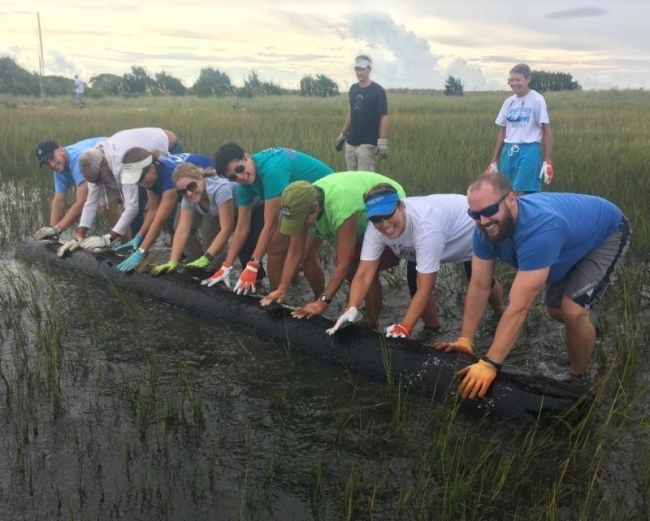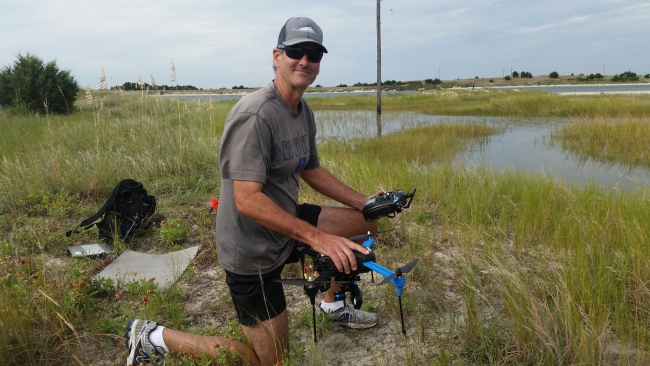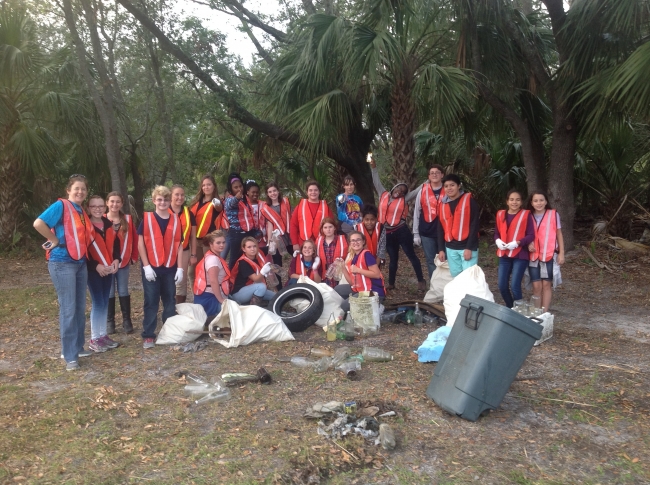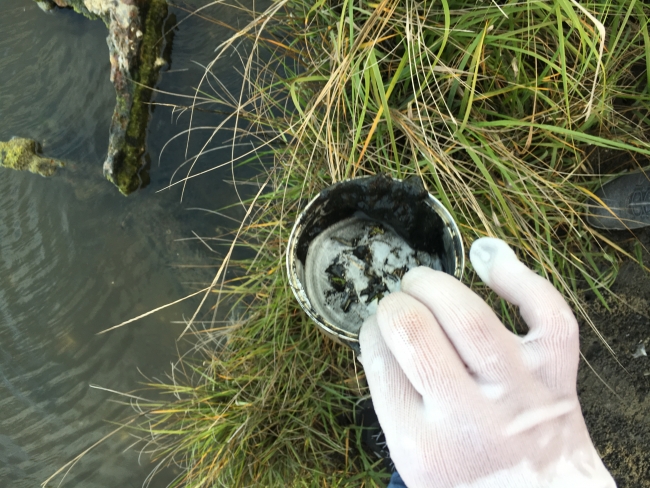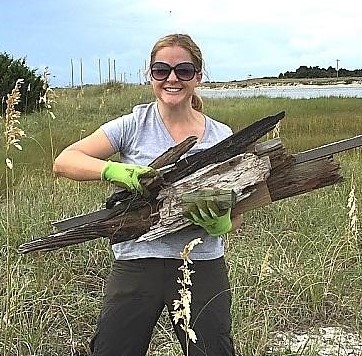 Meet Sarah Latshaw, the Southeast Regional Coordinator for the NOAA Marine Debris Program, based in beautiful Charleston, SC. Sarah joined the Marine Debris Team in 2014, after working as a Coastal Projects Manager for the South Carolina Department of Health and Environmental Control - Office of Ocean and Coastal Resource Management (SCDHEC-OCRM), where she focused on marine debris issues, coastal hazards, education, and outreach. Prior to that, Sarah was a NOAA Coastal Management Fellow for SCDHEC-OCRM, and developed a Beachfront Vulnerability Index for South Carolina. She also worked with the Kiawah Island Conservancy to examine homeowner-financed habitat restoration, which evolved into research for her M.S. degree in Environmental Science at the College of Charleston. Sarah also holds a B.S. in Wildlife Biology from the University of Georgia. Sarah loves new adventures, learning about different cultures, and exploring nature. Some of her favorite pastimes are bird watching, kayaking, finding snakes, gardening, spoiling her nieces, and of course, participating in litter cleanups. Reach out to Sarah at sarah.latshaw@noaa.gov!
Meet Sarah Latshaw, the Southeast Regional Coordinator for the NOAA Marine Debris Program, based in beautiful Charleston, SC. Sarah joined the Marine Debris Team in 2014, after working as a Coastal Projects Manager for the South Carolina Department of Health and Environmental Control - Office of Ocean and Coastal Resource Management (SCDHEC-OCRM), where she focused on marine debris issues, coastal hazards, education, and outreach. Prior to that, Sarah was a NOAA Coastal Management Fellow for SCDHEC-OCRM, and developed a Beachfront Vulnerability Index for South Carolina. She also worked with the Kiawah Island Conservancy to examine homeowner-financed habitat restoration, which evolved into research for her M.S. degree in Environmental Science at the College of Charleston. Sarah also holds a B.S. in Wildlife Biology from the University of Georgia. Sarah loves new adventures, learning about different cultures, and exploring nature. Some of her favorite pastimes are bird watching, kayaking, finding snakes, gardening, spoiling her nieces, and of course, participating in litter cleanups. Reach out to Sarah at sarah.latshaw@noaa.gov!
The Southeast United States is a great place to enjoy some unique outdoor areas. The NOAA Marine Debris Program’s Southeast region spans the states of North Carolina, South Carolina, and Georgia, to which many people travel to experience the beautiful sand beaches and marshlands. Unfortunately, this area is also visited by marine debris. Thankfully, there are several efforts underway to keep our Southeast region clean and address the marine debris that plagues this area. Check out some of the projects that are working to remove and prevent debris in the Southeast:
Within the Rachel Carson Reserve in North Carolina, the North Carolina National Estuarine Research Reserve and researchers from Duke University are using unmanned aerial systems (UAS) to identify and map medium to large debris items within the reserve. This data is being used to prioritize debris for removal and monitor restoration of areas that have been damaged by debris. For more on this project, check out the project profile.
In Georgia, the University of Georgia Marine Extension and Georgia Sea Grant worked with students and teachers from Glynn Middle School to reduce and prevent marine debris in the area. Through this program, the school’s environmental club, the “Salt Marsh Soldiers,” removed debris from a local littered roadside marsh area and worked to inspire other coastal citizens to get involved. Guest lecturers also visited the school to encourage all 7th grade students to be engaged in the issue of marine debris. For a video on this project and more information, check out the project profile.
These are just a few examples of the many efforts to address marine debris in the Southeast. Keep your eye on our blog this week for more, and check out our website for more interesting marine debris projects in the Southeast and throughout the country!

